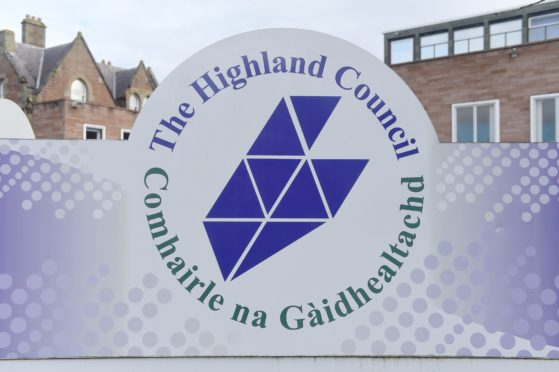Highland Council bosses will today tell councillors the coffers are facing a £28.5m budget gap this year, attributed to the impact of the pandemic.
The position is an improvement on predictions of £98m in May, and a further improvement on the £32m projected three weeks ago.
The council says this is a ‘central scenario’ which could go in either direction.
Bosses say the budget gap could rise to £43.6m, in the event of a second lockdown, winter pressures and Brexit.
But if the most optimistic scenario of continued progress out of lockdown continues, the council says the budget gap may come in at £4.2m.
A report going before councillors at the Corporate Resources committee today makes clear the level of uncertainty facing the council’s finances, stating that the year end position could be better, or even worse, than the scenarios envisaged.
The council has boosted its non-earmarked balances from £15.4m to £23.4m, in part by using the schools’ devolved school management budget of around £2m, a move that has not proved popular with councillors.
Using the reserves to close the central scenario budget gap would still see a deficit gap of more than £5m .
The Covid-related Food Fund is estimated to have cost £1.1m so far, but is expected to be re-funded by government income.
Other Covid-related budget hits at this stage include £1.7m in planning and building warrant income, £2.6m in car parking income; £3m in harbour and ferry income and a further £1.7m loss of income from investment property, roads consents and quarries.
Council bosses warned there will be further budget hits from school and public transport contracts.
They say that using Scottish Government-approved flexibility in pausing the Early Years 1140 roll-out, some of the unspent funds will be used to pay for the costs of keyworker childcare and mitigate some of the costs of the school return.
The council is also predicting a drop in council tax income of £2.6m from arrears and through the council tax reduction scheme.
Meanwhile, Argyll & Bute Council says its Covid response will cost more than £12m mainly from increased expenditure and loss of income.
The council says it has delivered new or expanded services for example to provide child care for essential workers, additional homeless accommodation and free school meals, and support in getting food to people in need.
Steps to recover from the impact of the pandemic,, such as work to make council buildings safe for use, have also brought additional costs.
Income to help deliver services has fallen, for example through reduced use of transport services (ferries, piers, harbours and parking), and reduced planning fee income.
After funding support from the Scottish Government for its COVID-19 response, the council is still left with an estimated shortfall of £5.9 million.
